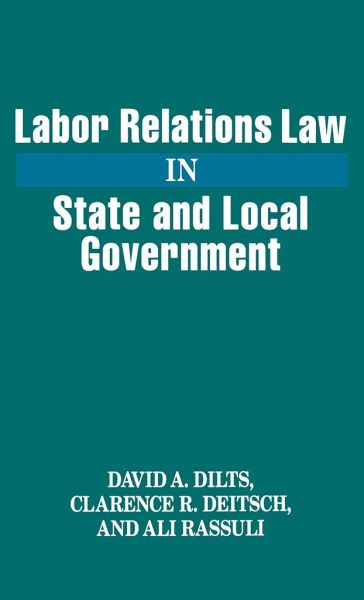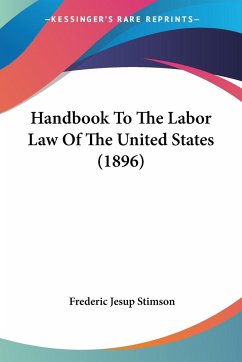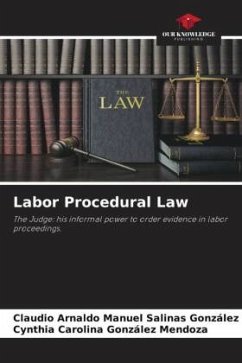
Labor Relations Law in State and Local Government
Versandkostenfrei!
Versandfertig in 1-2 Wochen
87,99 €
inkl. MwSt.

PAYBACK Punkte
44 °P sammeln!
Labor law in state and local government is often characterized as a patchwork of inconsistent and contradictory statutes. The purpose of this book is to present the labor law in state government in a concise and understandable manner. To date, there has been no systematic treatise on the subject that is generally applicable. The authors have collected and analyzed the laws of each state that have enacted collective bargaining statutes. Comparisons are drawn with the National Labor Relations Act and the evidence suggests that there is a significant area of consistency, suggesting that many juri...
Labor law in state and local government is often characterized as a patchwork of inconsistent and contradictory statutes. The purpose of this book is to present the labor law in state government in a concise and understandable manner. To date, there has been no systematic treatise on the subject that is generally applicable. The authors have collected and analyzed the laws of each state that have enacted collective bargaining statutes. Comparisons are drawn with the National Labor Relations Act and the evidence suggests that there is a significant area of consistency, suggesting that many jurisdictions have modelled their statutes after the federal law; making only those modifications necessary to local conditions. Rather than focus on minute details of specific statutes, the authors have presented a general analysis of the major aspects of the state collective bargaining laws. The book begins with an introduction and overview of the states' labor laws. An analysis of why states must act if collective bargaining rights for public employees are to be protected is presented together with an analysis of the political and economic reasons for inconsistent treatment of public sector employees collective bargaining rights. The discussion then turns to the structure and functions of administrative law agencies, the rights of employers and employees, the scope of bargaining, bargaining in good faith, impasse resolution and its impact, and contract enforcement and administration.












